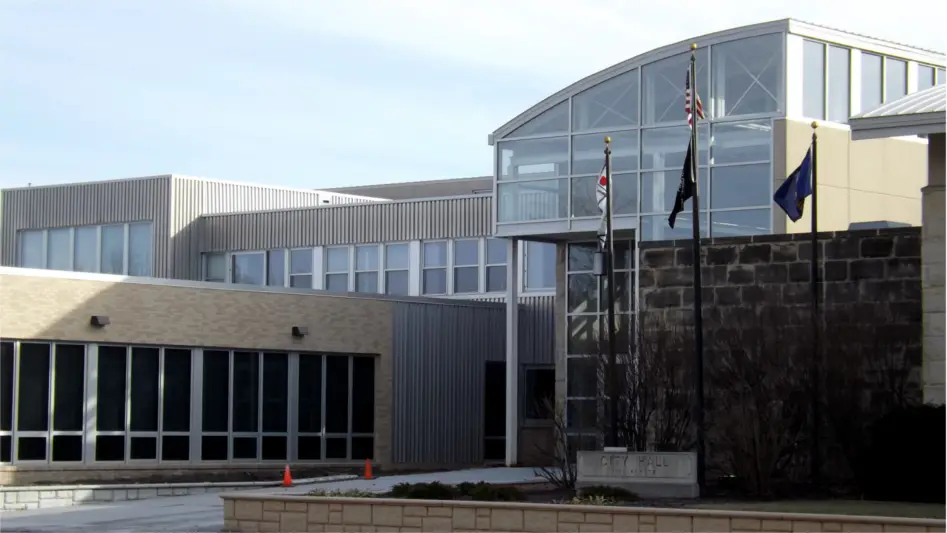More than a dozen people spoke in favor of creating a mandatory rental inspection ordinance in the City of Manhattan during Tuesday’s City Commission meeting. A majority of the commission was in favor of city staff further exploring a mandatory inspection program, but no ordinance was passed.
Since Manhattan’s rental registration program began in 2017, more than 13,000 rental properties have been filed with the city. Though the program does not require any mandatory code inspections, Manhattan Assistant Fire Chief Brad Claussen says they’ve performed about 99 per year since 2011 — when Manhattan’s mandatory inspection program was rescinded.
Commissioner Jerred McKee brought the topic forward and says he’s been working with renters and landlords for more than a year on the issue. He didn’t endorse any specific elements for a policy, but advocated the city look at the Lawrence model to build from.
Lawrence performs annual inspections of 10 percent of a landlord’s units, up to a maximum of 15 units. There is a fee associated with the program and Lawrence Code Enforcement Manager Brian Jimenez said in a previous housing discussion that the program began to pay for itself within three years. They check for all code violations during inspections, but they base some incentives on a shortened list of codes.
McKee says what the city is doing in terms of rental registration isn’t enough to ensure renters’ safety. He says that with the transient and student population of Manhattan, it’s almost impossible to ensure everyone is educated of their housing rights in the city.
“19-year-old Jerred wasn’t touring a house and looking for egress windows, but I would have looked for an egress window if I was in a basement and the top of my house caught on fire,” says McKee. “We’ve seen those old homes in Manhattan catch on fire and burn down before the fire department ever got there — and thank the lord there’s never been someone in that basement.”
Commissioner Wynn Butler was the deciding vote in 2011 to remove Manhattan’s mandatory inspection program. Butler expressed uncertainty about the legality of Lawrence’s ordinance under state law. He also says that he’s heard a lot of stories, but not a lot of data supporting the prevalence of safety issues in Manhattan. Additionally, Butler questioned why people have the courage to come to the commission but not the code office to get a voluntary inspection.
“Clearly if you rent something and it’s substandard and you know the floor is going to collapse — call the code office, we’ll fix it. It’s in our program,” says Butler. “The tenant has to have some responsibility, how can it be the government?”
Butler was more favorable of adding a voluntary rental certification to the program to help inform renters of what properties passed inspection. He says the information could be publicize it on the city and university websites, possibly allowing the free market to handle the situation. But
A total of 16 people spoke during public comment, mostly favorable of mandatory inspections — though not many landlords were present in the audience.
Phil Anderson has owned rental properties in Manhattan since 1981. He told commissioners he’s seen thousands of homes in the community that are visibly not being maintained and urged them to address the issue seriously.
“And I think it’s important, especially with the reputation this city is trying to maintain with NBAF coming online in two years,” Anderson says.
Kansas State University Chief of Staff Linda Cook spoke as a representative of K-State. Cook says the university wants to help address housing safety issues around the community and facilitate communication in any way it can.
“You see a lot of them from the outside,” says Cook. “So what can we do to go in and work with those landlords that are not maintaining them and upgrading them to at least the health and safety standards that every person in this community should and does deserve.”
Not everyone who spoke during public comment was sold on the idea. Resident Brice Ebert says everyone agrees on the importance of safety, but that there is no direct correlation between an inspection program and rental safety and pointed to the existence of the current program not eradicating safety issues to demonstrate that. He says that to truly ensure safety, every unit would need to be inspected — or none of them out of equity.
“I feel we could get a lot more accomplished by working together than we would be on opposite sides of the table,” Ebert says, adding that such an ordinance has unforeseen and unknown consequences.
Mayor Mike Dodson says they should entertain the idea and investigate the ordinance more before moving forward. Commissioner Linda Morse says she continues to support an inspection ordinance and that she believes they’re doing transient residents a disservice by marketing the city to attract them only for them to have to deal with housing that is not ideal. Mayor Pro Tempore Usha Reddi agreed with the prospect of working with landlords on the issue, and says she wants to find a way to address it without pushing developers out of the city.


